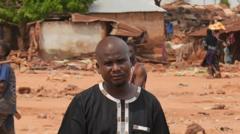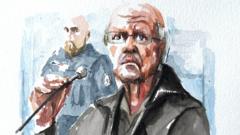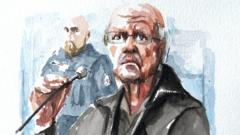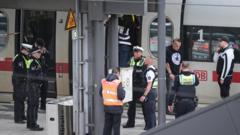The pardon of Moussa Dadis Camara, former leader responsible for the massacre of over 150 protesters in Guinea, has sparked debate as the military government begins plans to compensate victims.
Guinea's Ex-Military Leader Receives Pardon, Prompting Outcry Over Justice for Massacre Victims

Guinea's Ex-Military Leader Receives Pardon, Prompting Outcry Over Justice for Massacre Victims
Moussa Dadis Camara, the ex-ruler implicated in the 2009 stadium massacre, is pardoned for health reasons, raising concerns about accountability.
Guinea’s ruling military junta has unexpectedly granted a pardon to former military leader Moussa Dadis Camara, who was serving a 20-year sentence for his role in one of the country’s most notorious events, the 2009 stadium massacre. The announcement, made on state television, cited health reasons for the decision, which has raised eyebrows among human rights advocates and victims’ families.
Camara, 61, took power in Guinea after the death of long-time President Lansana Conté in 2008, rising from an anonymous army captain to a significant political figure. Following an assassination attempt shortly after the massacre, he fled the country but returned in 2022 to face accountability for the 2009 events, where security forces killed over 150 attendees of a rally advocating for a return to civilian governance. The brutalities that day also included the widespread rape of women and violent suppression of the crowd.
He was sentenced along with seven military commanders in July 2024 after a lengthy trial process lasting 22 months. Despite insisting on his innocence throughout, Camara’s pardon coincides with a significant shift in the military government’s approach to the victims, as they have recently announced plans to compensate those affected by the massacre. Compensation amounts include $173,000 for each rape victim, $115,500 for the deceased, and $57,000 for instances of looting.
Eyewitness accounts from that tragic day in September 2009 describe horrific scenes as armed military personnel opened fire on the crowd with live ammunition, leading to a fatal stampede and instances of extreme violence. In the aftermath, Camara’s deputy successfully transitioned the nation to a civilian government with the election of Alpha Condé in 2010.
Following a coup in 2021 that disrupted the emerging democratic processes, Camara's name resurfaced amid ongoing conversations regarding Guinea’s turbulent military legacy and the persistent demands for justice from the families of the massacre victims. As the country navigates this controversial pardon, the implications for future accountability and reconciliation remain to be seen.




















